


Welcome to Discovery Playtime! Where Learning Meets Fun.
We offer a variety of exciting opportunities, including seasonal camps, teacher training, parent talks, and engaging workshops focused on child development. Plus, you can tune into our 'Rediscovering Childhood' podcast and join in on our fun family events, all designed to support growth, learning, and connection.
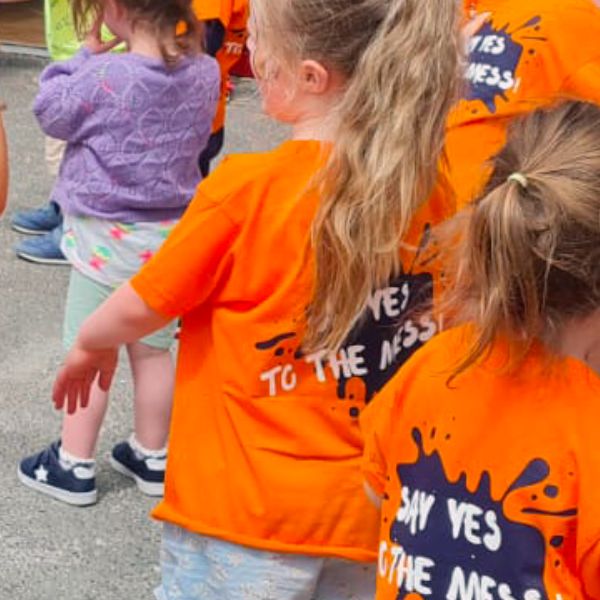
Seasonal Camps
Summer, Halloween and Easter camps for 3-6 years
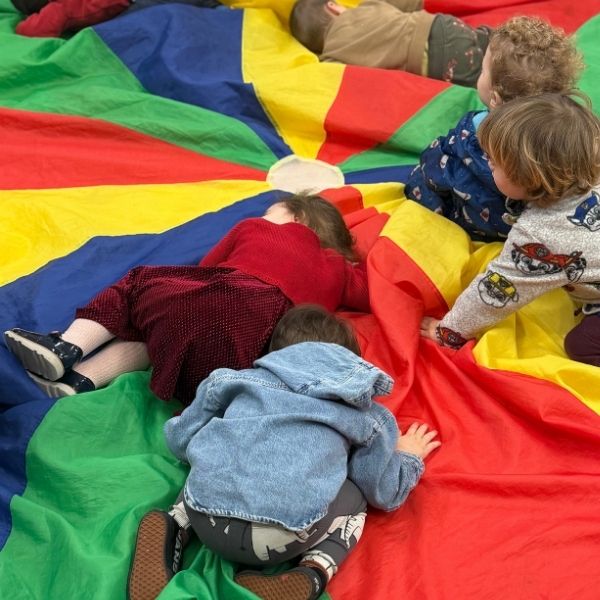
Play Sessions + Events
Keep up to date with our upcoming sessions and events
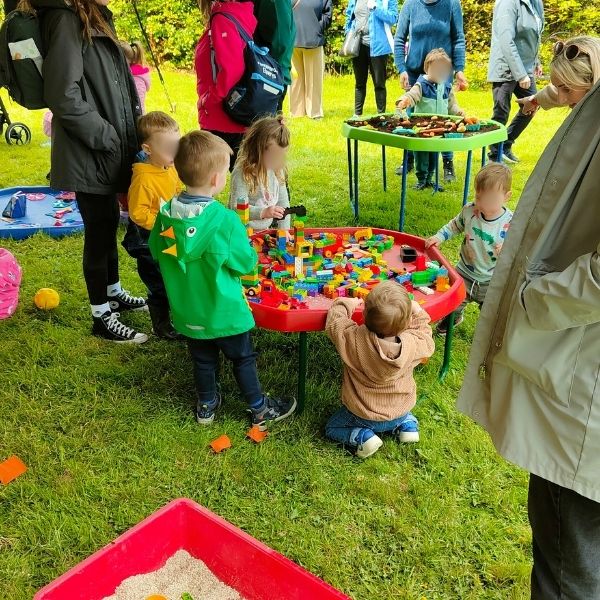
Pop-Up Play Areas
Ideal for weddings, festivals, corporate family days, or community events

Rediscovering Childhood Podcast
Honest conversations about parenting and education
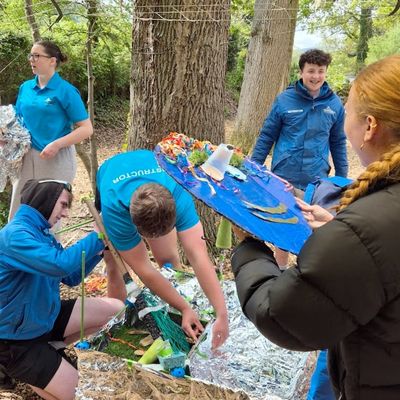
STAFF TRAINING
Engaging, practical training for hotel mini-clubs and seasonal camp teams
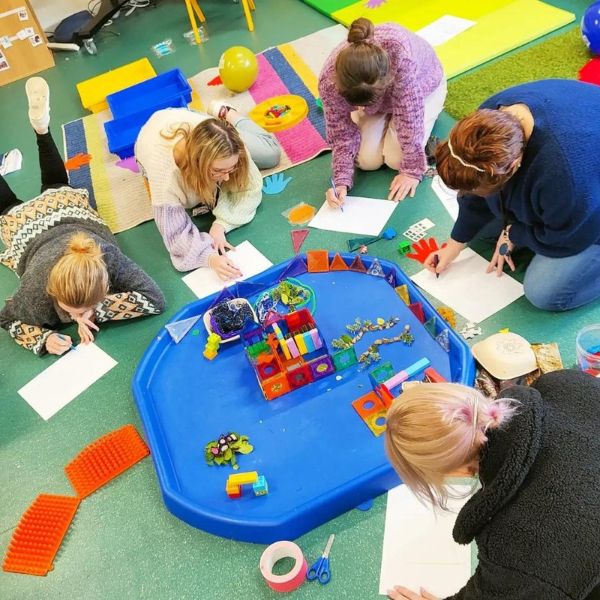
EARLY YEARS CPD
Practical CPD for nurturing emotional growth through play
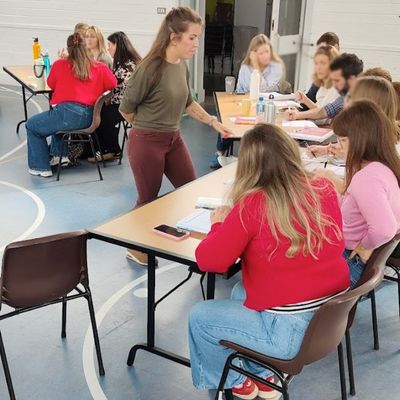
PRIMARY CPD
Empowering teachers to create inclusive, meaningful learning experiences
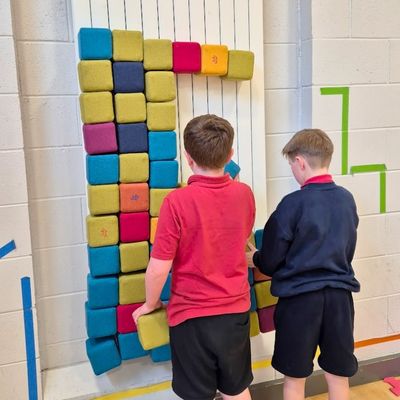
EDUCATIONAL PLAY SESSIONS
Bringing creative, educational play experiences to your school.
DON'T MISS OUT ON OUR CHRISTMAS EVENTS
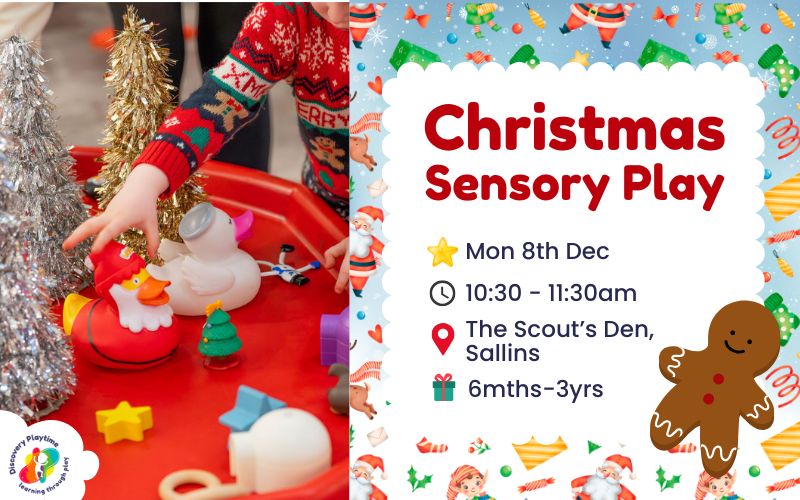
Join us in Sallins for a festive Sensory Play Session filled with messy play, music, and gentle surprises - a joyful morning for little ones aged 6 months to ECCE.

Our Christmas Disco is back! Join the elves for dancing, games, and festive fun for the whole family this December at the Osprey Hotel, Naas.
Let's raise confident, creative, resilient kids!
Let's raise confident, creative, resilient kids!
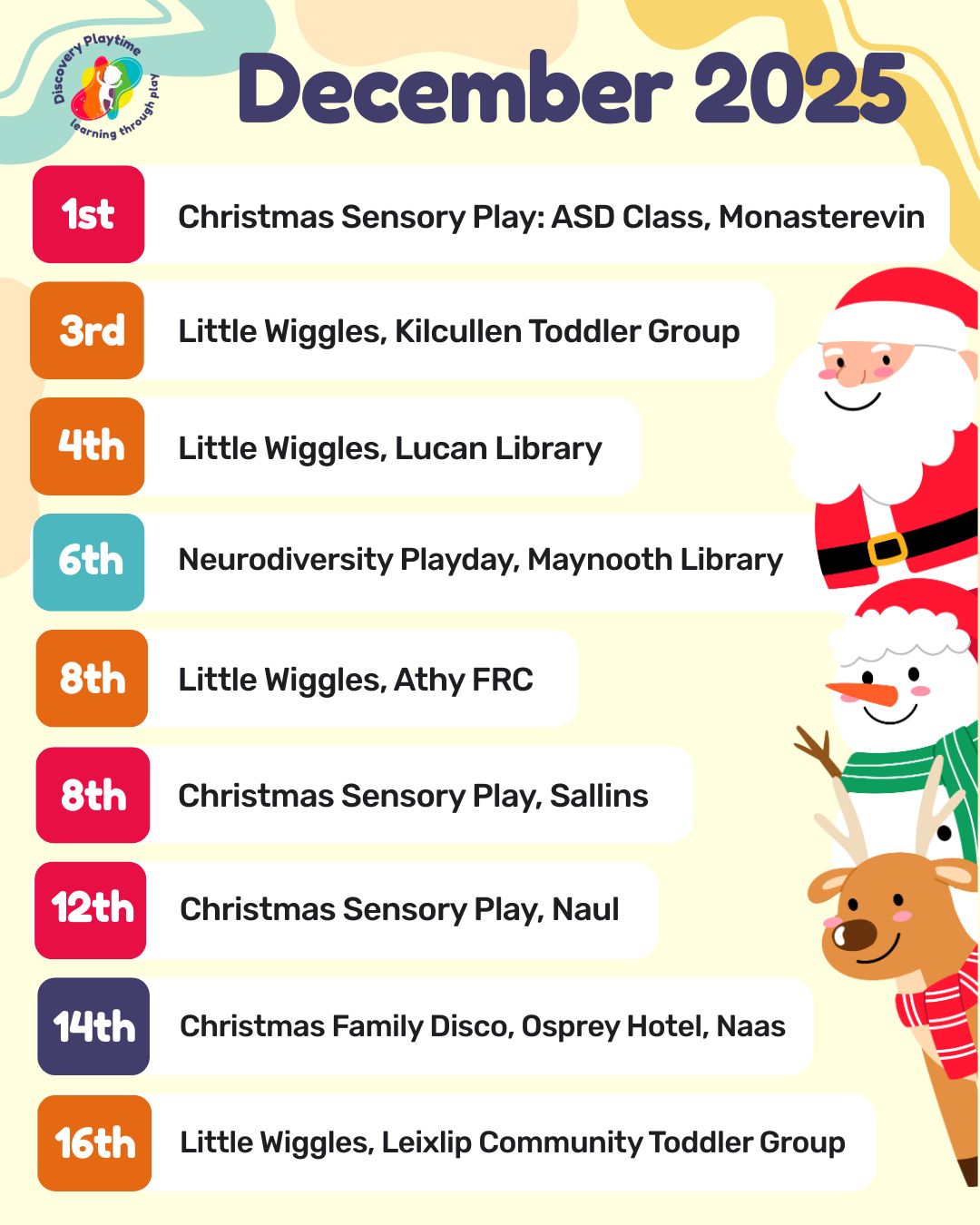
This December, Discovery Playtime brings festive sensory play, joyful Little Wiggles sessions, and fun family events to communities across Kildare, Dublin, and beyond. Each experience is designed to spark creativity, support child-led learning, and create magical moments of connection during the holiday season.

Tuff Tray & Adjustable Stand + free gifts
Tray Only - €32
Includes a free Tuff Tray Mat (style chosen at random)
Tray + Stand Bundle - €99
Includes free Pizza Oven Playset
Stand Only is sold out.
JollyHeap® Magnetic Blocks
Inclusive, Creative Learning through Magnetic Play
OUR CHARITY PARTNER: SENSATIONAL KIDS
We are proud to partner with Sensational Kids, a leading Irish charity and social enterprise dedicated to empowering children with additional needs. Their mission strongly aligns with our own - supporting every child’s development through play, learning, and connection.
Together, we aim to promote inclusive, accessible, and affordable support for families across Ireland. From high-quality therapy services to expert-led training and a purpose-driven shop filled with educational and sensory resources, Sensational Kids is transforming lives every day.
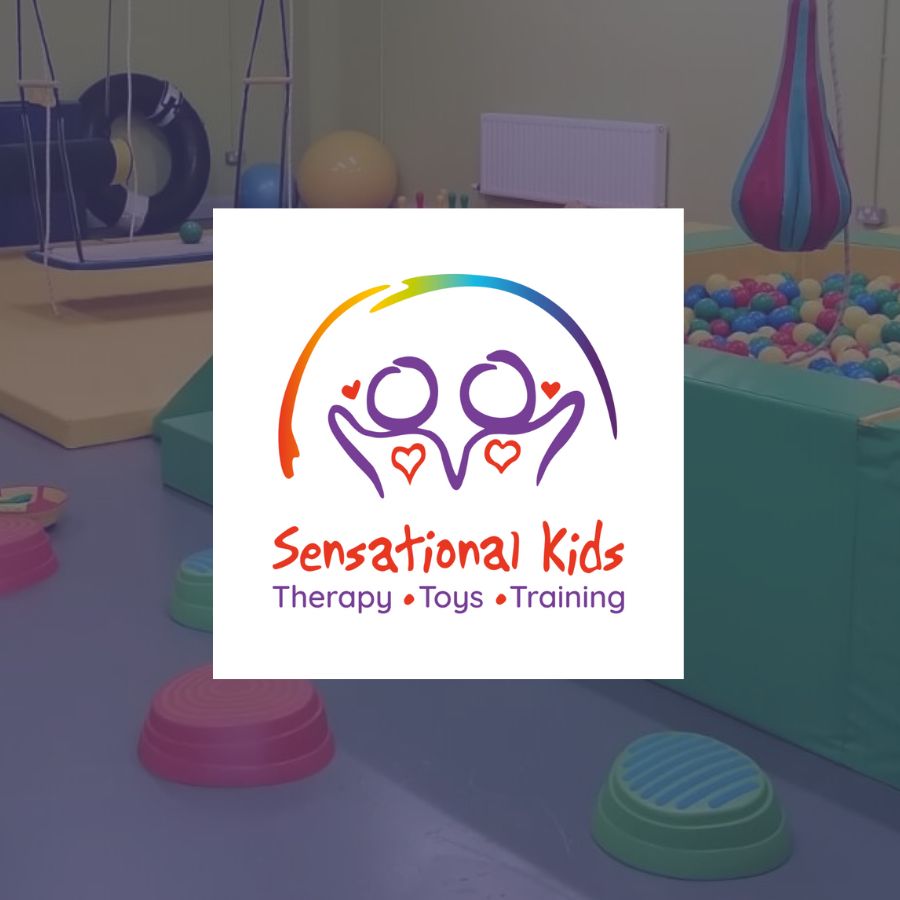
SPECIAL OFFER FOR OUR COMMUNITY
Enjoy 10% off full-price items at Sensational Kids Shop with code DISCOVERY at checkout.
Shop with purpose. Learn with impact. Support a child’s potential.
Every purchase helps fund vital therapy services for children who need them most.
Rediscovering Childhood Podcast
Rediscovering Childhood Podcast
Let’s explore parenting and education through honest conversations. Each episode brings insights from parents, teachers, therapists, and experts, inviting a fresh look at traditional parenting methods.
With practical tips and a celebration of childhood’s magic, it empowers listeners to foster meaningful connections and embrace joy in everyday moments.

Our Latest Blog Posts
Little Wiggles at Lucan Library - Music, Movement & Play for Little Ones
Discover the magic of Little Wiggles at Lucan Library. An Interactive Play Session for ages 0–3 combining music, movement, and play in a warm, welcoming environment. find out what makes this community... ...more
Community Events ,Sensory Play & Hands-On Activities &Interactive Play Sessions
November 17, 2025•2 min read

Case Study: Alive Outside x Discovery Playtime
Discover how Discovery Playtime partnered with Alive Outside to redesign the creative experience at their outdoor adventure camps. This case study explores a collaborative consultancy process that led... ...more
Corporate and Project Partners ,Training & Educational Outreach Case Studies Professional Training &Team Development
October 29, 2025•2 min read

Celebrating 50 Years of Community at Carlow Community Centre with Discovery Playtime
Discovery Playtime joined the 50th anniversary celebration at Carlow Community Centre with a dedicated outdoor sensory play space. This blog highlights how play-based activities supported creativity, ... ...more
Community Events
August 31, 2025•2 min read

The Power of Connection: Reflections from the Neurodiversity Conference
Reflections from the Neurodiversity Conference, where parents, educators, and professionals explored sensory regulation, PDA, rhythm, and the power of play in supporting neurodivergent children. Insig... ...more
Inclusive & Neurodivergent Events
August 25, 2025•4 min read

STAY IN THE LOOP!
Subscribe for updates, upcoming events, and playful ideas to inspire learning at home and in the classroom!
Discovery Playtime
Educational and fun seasonal camps. Empowering teachers and schools with training and workshops focusing in child development and playful teaching. Supporting parents with talks in connection and skills development. Rediscovering Childhood podcast. Family fun events, Children's educational workshops.
Customer Service
Follow Us
© Copyright 2025. Discovery Playtime. All Rights Reserved.
Powered by MyDigiVA

Facebook
Instagram
LinkedIn
Youtube
WhatsApp